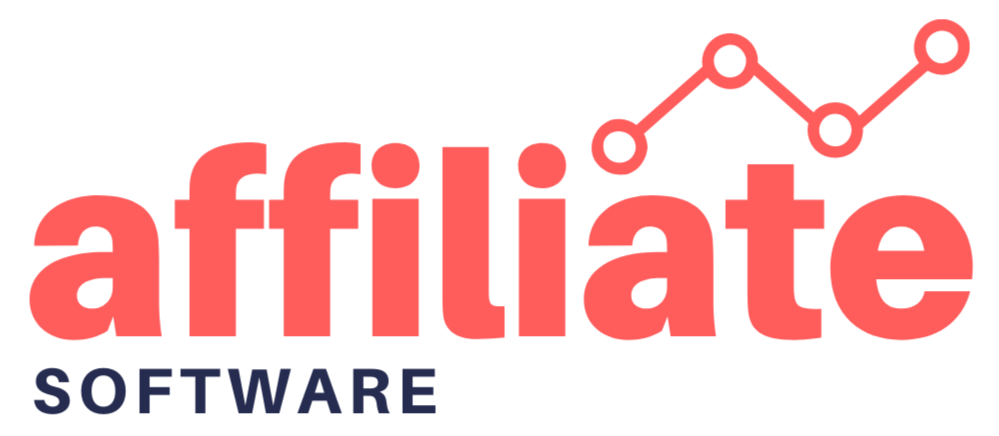Did you know over half of all US consumers listen to podcasts? This shows how affiliate marketing is changing. Now, you don’t need a website to make money online.
Before, you had to have a website to start affiliate marketing. But now, there are many other ways to do it. This blog will show you how to make money online without a website. We’ll look at new ways to do affiliate marketing and how to build a successful business.
What is Affiliate Marketing?
Affiliate marketing is a way for businesses to work with content creators. They give special links or codes to these creators. This lets the business know when a sale is made through the link.
When a sale happens, the business pays the creator a part of the money. This makes both sides happy. It’s a win-win situation.
At its heart, affiliate marketing uses the power of content creators to help businesses sell more. These creators can be people with lots of followers on social media, bloggers, or experts in certain fields. They share products they think their followers will like.
This way, they can make money from the sales they help make. It’s a great way for many online people to earn money.
The best thing about affiliate marketing is you don’t need a website to start. Many people do it just by using social media and other online places. They share links and make sales without a website.
As affiliate marketing grows, it shows great chances for businesses and creators to work together. It’s a way for businesses to reach more people and for creators to make money from their online presence. Knowing about affiliate marketing can really help your online business grow.
The Importance of Content in Affiliate Marketing
Creating quality content is key to success in affiliate marketing. It attracts and keeps your audience interested. This leads to more traffic and sales.
Good content creation for affiliate marketing can really pay off. Research shows it boosts return on investment (ROI) for brands. Content marketing has been a game-changer for businesses for over a decade.
Creating valuable, interesting content strategies for affiliate marketing builds trust. People want quality content from brands they like. Bad content can make them lose trust.
Brands can help affiliates make better content. They can offer money, free stuff, or special deals. This motivates affiliates to make content that works well for both them and the brand.
Content is very important in affiliate marketing. Quality content helps affiliates stand out and build trust. It’s good for everyone – the affiliate, the brand, and the audience.
Choosing the Right Affiliate Niche
Choosing the right niche in affiliate marketing is key to success. Pick niches you love and have a big audience. This makes your work fun and keeps you going.
Popular niches include fitness, wellness, travel, and more. Even big niches like personal finance can be great. But, make sure to be specific to find your audience.
Use tools like Google Keyword Planner to check your niche. This helps find niches with lots of searches and less competition. It’s a smart way to pick a profitable niche.
| Niche | Potential Commission Rates | Market Demand | Competition Level |
|---|---|---|---|
| Personal Finance | High (up to 50%) | High | Moderate |
| Fitness and Wellness | Moderate (10-25%) | High | High |
| Adult Niche | High (up to 75%) | High | Low |
| SaaS and Marketing Software | High (up to 50%) | High | Moderate |
By picking the right niche, you set yourself up for success. Find a balance between what you love and what’s profitable.
Finding Profitable Affiliate Programs
Finding the right affiliate programs is key to making money. It doesn’t matter if you’re new or have experience. Look for programs that fit your niche and audience. Check out networks like Impact, CJ Affiliate, ShareASale, and Rakuten Advertising. They offer many programs in different fields.
Look at the commission rates, product quality, and how happy customers are. Just because a program pays well doesn’t mean it’s good. Choose programs that offer good value and keep customers happy. This helps your reputation and earnings in the long run.
Use tools like Ahrefs to see what your competitors are doing. It shows you which programs are working well. Also, talk to people in online groups like Reddit. They share tips and advice on the best programs.
| Affiliate Program | Commission Rate | Niche | Product Quality |
|---|---|---|---|
| Amazon Associates | 1-10% | E-commerce | Varies |
| Clickbank | 50-75% | Digital Products | Varies |
| Thrive Themes | 35% | Website Builder | High |
| Semrush | 20% | SEO Tools | High |
Finding good affiliate programs means finding a balance. Look for programs that pay well and help your audience. By doing your research, you can start a successful affiliate marketing business.
Understanding Advertising Disclosures
In the world of affiliate marketing, being open is very important. Advertising disclosures help keep trust and fairness. They tell people about money ties and possible biases in the products or services promoted.
Disclosures make things clear by sharing the money reasons behind promotions. Places like the Federal Trade Commission (FTC) in the U.S. have rules for this. They help keep marketing honest by making sure people know the truth.
Disclosures help people make smart choices and keep trust in creators. 8 out of every 10 consumers bought something after seeing a recommendation. This shows how key affiliate marketing advertising disclosures, FTC disclosure requirements, and transparency in affiliate marketing are.
- The FTC started publishing Endorsement Guidelines in 2009. They say to add an affiliate disclosure when you get paid for reviews or talks about products or services.
- Not adding an affiliate disclosure can cause legal problems. For example, LulaRoe was sued for $49 million because of bad affiliate disclosures.
- The FTC updated the rules for affiliate disclosures. Now, the disclosure must be clear, seen first, and easy to understand. It should say things like #ad and be upfront.
Knowing about affiliate marketing advertising disclosures helps creators and affiliates build trust. They can work fairly in the industry.
do i need a website for affiliate marketing
Affiliate marketing has changed a lot. Now, you don’t need a website to start. Many people are using affiliate marketing without a website. This is because new platforms are making it easier to market products.
One big plus of not needing a website is using what you already have. If you’re popular on social media or have a big email list, you can use these to promote products. This way, you can reach more people and make money.
- Use TikTok, Instagram, Facebook, Pinterest, and YouTube to share products and connect with people.
- Send emails to your subscribers with affiliate offers.
- Try podcasting or ebooks to share your knowledge and promote products.
To do well in affiliate marketing without a website, focus on being seen as an expert. Make content that people find useful and build real connections with your audience. This way, they will trust you and listen to your recommendations.
The main goal is to help your audience solve their problems. You can do this with or without a website. Success comes from knowing your audience, making great content, and being real with them.
Leveraging Social Media Platforms
Social media is a big help for affiliate marketers. Sites like Instagram, TikTok, Facebook, YouTube, and Pinterest are great. They help you grow your audience and share products.
For instance, you can share gardening tips on Instagram. This builds trust and makes you seem like an expert. Or, you can make videos on YouTube about your products.
TikTok is great for short, fun videos. It’s popular with young people. Facebook and Pinterest are good for other groups. Pinterest is especially good for selling things because of its pictures and quick sales.
The main thing is to make good content. This content should be helpful and fun. It helps you connect with your audience.
With social media, you can make money from sales. You get a cut of the sale. Tools help you see how well you’re doing and improve.
So, if you want to do better in affiliate marketing, use social media. It opens up new ways to grow and earn more.
Blogging Alternatives: LinkedIn Pulse, Medium, and Substack
Many think you need a website or blog for affiliate marketing. But, there are other ways to do it. Let’s look at LinkedIn Pulse, Medium, and Substack as options.
LinkedIn Pulse and Medium are big places to share content. They help you become known and earn money without a blog. Affiliate marketing on LinkedIn Pulse and Medium uses their big audiences to help you.
Substack is a newsletter site that’s getting popular. With affiliate marketing on Substack, you can send emails to your readers. This builds a personal connection and still makes you money.
These sites are easier to use than a blog. They save you time and let you join big communities. Plus, your content can show up in search results, helping you get found online.
Remember, being trusted and known is key on these sites. Make sure your content is good and meets your audience’s needs. This way, you can make the most of these alternatives.
In short, LinkedIn Pulse, Medium, and Substack are great for those who don’t want a blog. They let you share content, grow your audience, and make money. All without the work of a website.
Email Marketing for Affiliate Promotions
Email marketing is a strong tool for affiliate marketers. It helps build affiliate marketing email lists and promote affiliate offers. By using email newsletters for affiliate marketing, you can give value to your audience. This builds trust and makes you an expert in your niche.
Email marketing is very flexible. It lets you send content and offers that match your subscribers’ needs. This makes your emails more engaging and can lead to more clicks and sales.
To build an email list for affiliate marketing, tools like GetResponse, ActiveCampaign, and Brevo (Sendinblue) are good. They offer features like customizable workflows and affiliate tools to help you.
| Email Marketing Platform | Affiliate-Friendly Features | Affiliate Commission Rates |
|---|---|---|
| GetResponse | Customizable workflow editor, affiliate website builder | $100 one-time commission or 33% recurring |
| ActiveCampaign | Allows affiliate marketing within email campaigns, with some restrictions | N/A |
| Brevo (Sendinblue) | Drag-and-drop editor, visual workflow automation, free plan available | €5 per signup, €100 per new paying customer |
Using email marketing for affiliate promotions can help you reach and engage your audience. It builds trust and drives sales for your partners. Always aim to send quality content and keep your audience interested for the best results.
Podcasting for Affiliate Marketing
Podcasting is great for affiliate marketers. It helps you reach more people and promote products. You can make content that’s fun, useful, or interesting. This builds trust with your listeners.
You can put affiliate links in your show notes or bio. This makes it easy for listeners to find the products you recommend. You can also share promo codes during your episodes. This helps your affiliate partners know you helped make the sale.
| Affiliate Marketing Metric | Hypothetical Example |
|---|---|
| Commission Rate | 5% for a $1,500 course |
| Earnings per 10 Sign-ups | $750 |
You can also write off the time you spend promoting as a business expense. This can help with taxes. But, you need to make sure the products you promote fit your audience well.
Many affiliate networks like Amazon Associates and ShareASale have lots of products to promote. They also help you track your earnings. This makes it easier to report your taxes correctly.
To get better at podcast affiliate marketing, use special codes or links. This helps you track sales and give your listeners special deals. Even platforms like Spreaker have affiliate programs. This means you can earn money by referring new users.
Shows like The Adam Carolla Show and MMANuts are good examples. They promote products that fit their audience well. By choosing the right brands, you can keep your listeners’ trust while making more money.
Paid Advertising Strategies
Paid ads can help a lot in affiliate marketing. Pay-per-click (PPC) ads are very popular. You create an ad for a product, pay for each click, and get money for sales.
It’s key to pick the right people to show your ads to. Since you only get paid for sales, plan well before spending money.
Some top affiliate marketing paid advertising sites are:
- Google Ads: Big and popular, with lots of ads.
- Facebook/Instagram Ads: Great for finding the right people.
- Pinterest Ads: Good for ads with pictures.
When using ads for affiliate marketing, be clear with your audience. Also, check how your ads are doing and change them to get better results.
| Platform | Key Benefits | Potential Challenges |
|---|---|---|
| Google Ads |
|
|
| Facebook/Instagram Ads |
|
|
| Pinterest Ads |
|
|
Using smart affiliate marketing paid advertising can help you reach and sell to more people. This means more money for your business.
Conclusion
Having a website helps a lot in affiliate marketing. But, you don’t need one to start. You can use social media, email, podcasts, and ads to get going.
It’s key to pick a good niche and make great content. This way, you can be a pro in your field without a website. The market is big, with over $17 billion in 2023. And 16% of online orders come from affiliates.
Whether you build a website or not, be open to new ideas. Keep learning and find what works for you. With the right mix of content and promotions, you can do great in affiliate marketing.




Leave a Comment